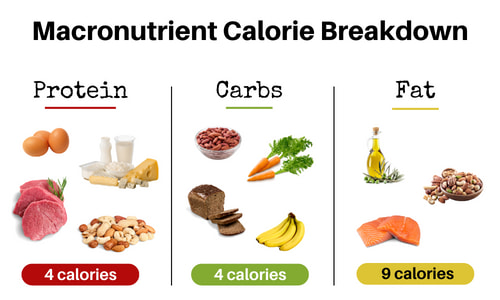“The Best Milk to Gain Weight” was written by Amber Lam, RD & edited by Amanda Crowe, MS, RDN, CD. Final review/edit completed by Aly Bouzek, MS, RDN.
Introduction
Struggling to gain weight can be just as frustrating as trying to lose it. Whether due to illness, a chronic health condition, or a decreased appetite, some individuals find themselves looking for effective ways to gain weight.
Nutrition is an important factor to consider when trying to gain weight. Among the weight gain options available, milk emerges as a popular choice for its potential to support weight gain in a nutritious and balanced manner.
In this article, we’ll explore the role of milk in weight gain, and we’ll learn which milks are the best to support weight gain.
>> Jump to reveal the best milk to gain weight! <<
Understanding Weight Gain and Nutritional Needs
For those looking to gain weight, the basic principle is to consume more calories than your body burns. The extra calories provide your body with the energy it needs to build muscle mass and add healthy weight.
The quality of these calories matters just as much as the quantity. A balanced diet includes essential nutrients like protein, healthy fats, vitamins, and minerals. These are all necessary for promoting overall health while reaching weight gain goals.
Why is Milk a Popular Choice to Gain Weight?

Milk has gained attention as a valuable aid in weight gain for several reasons.
First, it’s easy to add additional nutrients to milk.
Milk serves as a great source of protein, making it a natural choice for those trying to increase or maintain muscle mass.
Second, milk is nutrient-dense, meaning it provides a considerable amount of essential nutrients per serving.
These factors are helpful when looking to improve nutritional intake and gaining weight.
Lastly, for those with a cow’s milk allergy or sensitivity, plant-based milk alternatives are available. With additional calories added, plant-based milk alternatives can be a great option to help with weight gain.
Nutritional Content of Milk
Before exploring the different types of milk options and deciding what is the best milk to gain weight, let’s look at the nutritional content of milk. Milk is a source of several nutrients, vitamins, and minerals, including:
- Protein
- Calcium
- Vitamin B2
- Vitamin B12
- Phosphorus
- Potassium
- Vitamin A and vitamin D are both added to milk to increase its nutritional value
These vitamins and minerals are important for bone health, muscle function, and overall well-being.
Dairy Milk vs Plant-Based Milk Alternatives
There are several milk options to consider when trying to choose the best milk to gain weight. Cow’s milk includes whole milk, 2% milk (reduced fat milk), and skim milk (fat free milk), each with a small difference in nutritional content.
Plant-based milk alternatives are also available such as soy, almond, and oat milk. We are going to examine the nutritional content of each milk to determine which is the best milk to gain weight.
Why is Fat Important for Weight Gain?
All foods are made up of at least one of three macronutrients: carbohydrates, fat, and protein. However, each of these three nutrients are not all treated the same when it comes to calories.

- Each gram of carbohydrate is 4 calories
- Each gram of fat is 9 calories
- Each gram of protein is 4 calories
Looking at the calorie counts above, we can see that fat carries the most calories per gram (almost double that of protein and carbohydrates)!
This is important on a weight gain journey – especially if volume/amount of food is an obstacle for you.
Eating foods high in healthy fats will help you reach your calorie goals with a smaller amount of food than foods high in protein and carbohydrates.
The Best Milk to Gain Weight: Nutritional Benefits of Each
The table below compares the nutrient value of both cow’s milk and plant-based milk alternatives.
Please note, nutrient values may vary depending on the brand of milk, so it is important to read the nutritional facts label to make an informed choice.
The nutritional values below only include unsweetened plant-based milks. Choosing a sweetened version may increase the calories, and will also increase the added sugar content.
| Type of Milk | Calories in 1 cup | Protein (grams) | Total Fat (grams) | Calcium (mg) | Potassium (mg) |
| Whole milk | 149 | 8 | 7.8 | 300 | 366 |
| Reduced fat milk (2%) | 122 | 8.2 | 4.6 | 307 | 388 |
| Skim milk (1%) | 83 | 8.4 | 0.2 | 322 | 407 |
| Soy milk | 129 | 8.3 | 5 | 237 | 371 |
| Almond milk | 37 | 1.3 | 3 | 422 | 76 |
| Cashew milk | 24 | 1 | 2 | 451 | 24 |
| Coconut milk | 76 | 0.5 | 5.1 | 459 | 46 |
| Rice milk | 115 | 0.7 | 2.4 | 288 | 66 |
| Hemp milk | 60 | 3 | 4.5 | 283 | 101 |
| Oat milk | 117 | 2 | 6.7 | 361 | 361 |
Here is a quick summary of the benefits of some cow’s milk and plant-based milk options to help you choose the best milk to gain weight.
Whole Milk
Whole milk is higher in calories and fat content than any other choice, making it a calorie-dense option. It is also rich in vitamins and minerals (calcium and potassium).
2% Milk (Reduced Fat)
This milk strikes a balance between calorie intake and fat content. It has less fat than whole milk while still providing essential nutrients.
1% Skim Milk (Fat Free)
Skim milk contains a similar amount of protein as whole milk, but with fewer calories due to its reduced fat content. Because of this, skim milk on its own may not be the best milk to gain weight.
Plant-Based Milks (Soy, Almond, Oat, Rice, etc.)
If a cow’s milk allergy or sensitivity exists, plant-based milk can be used as an alternative. However, looking at the table above, many of these alternatives have less calorie, protein, and fat when compared to whole milk and reduced fat cow’s milk.
They do, however, have other nutrients of importance. When trying to gain weight, it is important to add nutrient-dense foods and drinks to your diet to help with weight gain.
So, Which Milk is the Best Milk to Gain Weight?
To gain one pound per week, an extra 500 calories are needed per day, in addition to your regular diet.
Looking at the table above, whole milk has the highest calorie and fat content, making it the best dairy milk to gain weight.
With 149 calories per cup, drinking just 2 cups of whole milk per day can provide an extra 300 calories. Milk can also be fortified to add even more calories for a high-energy, high-protein milk drink.
When it comes to comparing plant-based milk alternatives, oat milk wins out. Providing almost 120 calories and 6.7 grams of fat per cup makes this a great option for gaining weight with milk!
The Best Milk to Gain Weight: Adding Calories to Whole Milk
By adding whole milk powder to whole milk, its calorie and protein content can be increased even further. Three tablespoons of dry whole milk has around 150 calories and 8 grams of protein.
Adding dry whole milk to 1 cup of whole milk will provide close to 300 calories. Drinking this twice daily in addition to a regular diet can provide an extra 600 calories, helping you reach the 500 extra calories needed to promote weight gain.
Check out our article on Weight Gain Milk for tips on how to make your own fortified weight gain milk.
Adding the Best Milk to Gain Weight to Your Diet
Adding milk into your diet can be a simple process. Try adding 2 glasses of whole milk with 3 tbsp of added dry whole milk to one glass, and there you have an extra 500 calories for the day.
Sounds simple, right? It can be if you enjoy drinking milk! But for those who do not enjoy drinking milk by the glass, there are other ways to incorporate the best milk to gain weight into your diet.
Drink/Eat Milk with Meals
Milk at meals does not have to be restricted to just drinking a glass of it. Whole milk can be added to breakfast cereals, oatmeal, cookies, baked goods, whole-grain pancakes, etc.
Enjoy a glass of milk with lunch and dinner to increase calorie and nutrient intake.
Keep in mind, if you choose to drink whole milk with meals, it’s important to be sure it’s in addition to what you would typically eat for a meal. This will ensure extra calories are consumed and can help with weight gain.
Create Calorie-Dense Smoothies
To make a calorie-dense smoothie, add whole milk with fruits, nut butters, yogurt, and oats for a nutritious snack or meal. Adding in some dry whole milk will increase the calories of your smoothie even further.
Here are a couple of our favorite high calorie smoothie recipes from our sister site High Calorie Recipes:
- Avocado Weight Gain Smoothie, 839 calories per smoothie
- Avocado Banana Smoothie, 569 calories per smoothie
- Chocolate Peanut Butter Smoothie, 1,144 calories per smoothie
- Spinach Peanut Butter Smoothie, 495 calories per smoothie
Cook and Bake with the Best Milk to Gain Weight
The best milk for weight gain can also be used to cook and bake with! Any recipe which calls for milk (like soups, sauces, or baked goods) can include dry whole milk as well.
Additionally, whole milk can be added in place of water in some recipes to increase the calorie content. Here are a couple of our favorite recipes from our sister site High Calorie Recipes:
- Potato Leek Cauliflower Soup, 360 calories per one cup of soup
- Tomato Soup with Feta, 312 calories per serving
- High Calorie Muffins (Blueberry), 263 calories per muffin
- Weight Gainer Cookies, 277 calories per cookie
- High Calorie Bars (Baked Berry Oatmeal), 270 calories per bar
Balancing Intake with Overall Diet
While whole milk, the best milk for weight gain, can be a valuable tool for weight gain, moderation is key.
As with any food, overconsumption can lead to imbalances in your diet. Eating a balanced diet with a variety of nutrient-rich foods will support your health and weight gain goals.
Final Words
When aiming to gain weight in a healthy and sustainable manner, the role of nutrition cannot be underestimated. Milk, particularly fortified whole milk with its nutritional benefits, can be a valuable addition to your weight gain journey.
By choosing milk to gain weight and incorporating it into your meals, you can work towards achieving your desired weight gain while prioritizing your health and well-being.
If you have any questions about gaining weight or how many calories you should be eating to eat to gain weight, reach out to a Registered Dietitian or other health care professional.
